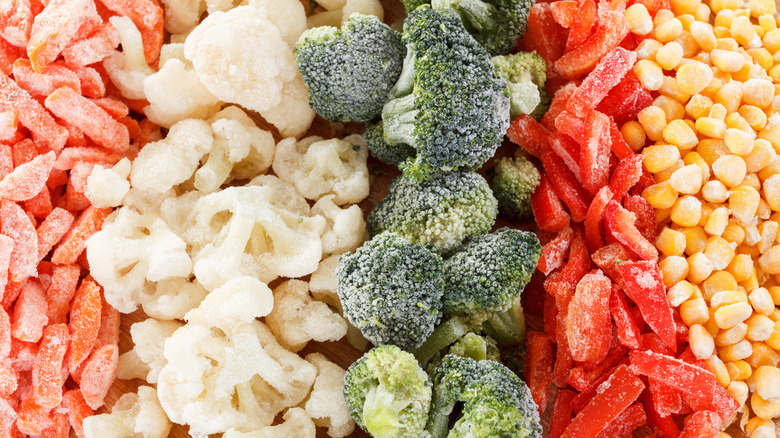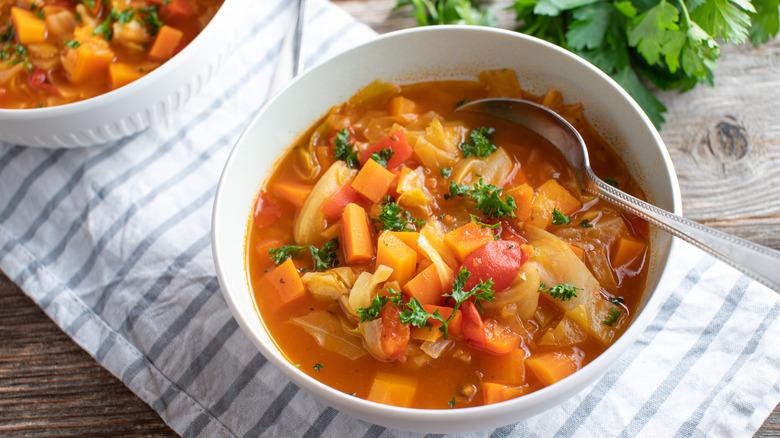When You Should Use Frozen Vegetables Instead Of Fresh For Soup
Frozen vegetables don't seem like a perfect match for soup. It's not so much the obvious temperature divide, it feels like a fundamental philosophical one. Soup is perhaps the most wholesome and homey of meals. Hearty bowls of tender meat, grains, and vegetables simmered slowly and long until all those fresh flavors meld into a comforting meal. Meanwhile, frozen vegetables still feel like quick convenience. Frozen broccoli is often thought of as thrown in the microwave and covered with cheese, not so much starring in a homemade vegetable soup.
But frozen veggies and soup have more in common at second glance. Both soups and frozen vegetables are all about stretching dollars and saving food. Soup is made for turning odds and ends, like the toughest, cheapest cuts of meat, into a full meal. Meanwhile, frozen vegetables, according to BBC Good Food, are usually cheaper than fresh produce, and their long shelf life results in far less waste. There is no denying the appeal of some fresh summer vegetables in tomato broth, but the fact is that sometimes frozen really is better than fresh. There really is a time and place to use frozen vegetables in soup, and it's probably more often than you think.
Go with frozen when vegetables are out of season
Some veggies in your soup are always a good idea, but depending on what vegetables you're using and when you may opt for frozen. According to Taste of Home, when your recipe calls for vegetables that are out of season, frozen is often the better option. That's because most vegetables are only in season, and at the peak of flavor, for a few months each year. Frozen vegetables, on the other hand, are chilled right after being picked, at the peak of their freshness. As AllRecipes notes, that means frozen vegetables often contain more nutrients than fresh vegetables that have been shipped around the country and sat on shelves for days. And unless your vegetables are farmers market fresh, you probably won't taste the difference with frozen either.
It's also meaningful that you are making soup where the vegetable texture will always trend toward the softer side. The biggest downside of frozen vegetables is usually their soggy texture, which is partially caused by the freezing process rupturing the veggies' cell walls, according to the University of Minnesota. With soup taking away the concern for texture and the seasons taking away your vegetables' fresh flavor, there really is no reason to avoid frozen. So next time a February craving for minestrone strikes, don't worry about the lack of fresh carrots and tomatoes. Grab a bag of frozen vegetables and enjoy a meal every bit as good as you could in July.

